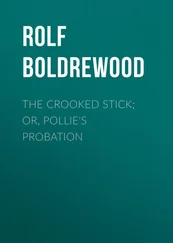Rolf Boldrewood - War to the Knife
Здесь есть возможность читать онлайн «Rolf Boldrewood - War to the Knife» — ознакомительный отрывок электронной книги совершенно бесплатно, а после прочтения отрывка купить полную версию. В некоторых случаях можно слушать аудио, скачать через торрент в формате fb2 и присутствует краткое содержание. Жанр: foreign_antique, foreign_prose, на английском языке. Описание произведения, (предисловие) а так же отзывы посетителей доступны на портале библиотеки ЛибКат.
- Название:War to the Knife
- Автор:
- Жанр:
- Год:неизвестен
- ISBN:нет данных
- Рейтинг книги:4 / 5. Голосов: 1
-
Избранное:Добавить в избранное
- Отзывы:
-
Ваша оценка:
- 80
- 1
- 2
- 3
- 4
- 5
War to the Knife: краткое содержание, описание и аннотация
Предлагаем к чтению аннотацию, описание, краткое содержание или предисловие (зависит от того, что написал сам автор книги «War to the Knife»). Если вы не нашли необходимую информацию о книге — напишите в комментариях, мы постараемся отыскать её.
War to the Knife — читать онлайн ознакомительный отрывок
Ниже представлен текст книги, разбитый по страницам. Система сохранения места последней прочитанной страницы, позволяет с удобством читать онлайн бесплатно книгу «War to the Knife», без необходимости каждый раз заново искать на чём Вы остановились. Поставьте закладку, и сможете в любой момент перейти на страницу, на которой закончили чтение.
Интервал:
Закладка:
This incident impressed our Englishman more than weeks of description could have done, with the peculiar characteristics of the strange race among whom he had elected to dwell. Pride and sensitiveness, to the point of frenzy, were evidently among the attributes which had to be considered at risk of personal damage.
He was, however, surprised at the cool way in which the crowd had taken their comrade's discomfiture, and said as much to a respectable-looking man who was walking down the street with him.
"We're not afraid of the beggars," returned the townsman, "as we'll show 'em by-and-by. But it's no good starting before you're ready. That fellow was half-drunk, and it served him right. There's a big tribe at the back of these chaps, and they're in a dangerous humour about that cursed Waitara block. That's why the crowd wouldn't back the white man up. He's only a wharf-loafer, when all's said and done."
This explained the affair in great part. Doubtless a mêlée would have ensued if any hot-blooded individuals in the street had commenced an attack upon the Maoris. An obstinate and by no means bloodless fight must have arisen. Doubtless, in the end, the whites would have conquered. Then the tribe would have murdered outlying settlers, or attacked the town. The military would have been engaged. The war-torch, once applied, might have lighted up a conflagration over the whole island, necessitating an expenditure of blood and treasure which years of peace would have been insufficient to repay. All, too, occasioned by the idiotic folly of a worthless member of society.
Revolving such reflections, which, with other ideas and considerations, effectually excluded the image of Hypatia, Roland Massinger betook himself to his hotel, having discovered, as many a gentleman unfortunate in his love affairs has done before him, that this life of ours holds sensational interests, which, if not sufficing to assuage the pangs of unrequited love, yet act as a potent anodyne.
To such an extent did the subject of the diplomacy urgently required at such a juncture excite his interest, that he cast about for some means of visiting the camp of these strange people, and learning more about their embassy, which had so suddenly acquired importance in his eyes. Having fully decided upon making New Zealand his home, and becoming fired with ambition to aid in the development of this wonderland of the South, he had addressed himself on the voyage with commendable diligence to the study of the Maori language and traditions. Thus, though properly diffident as to his colloquial powers, he was in a position to more easily acquire a practical proficiency than if he had been without a preparatory course of study.
He had finished his lunch, and was enjoying his smoke on the balcony, gazing over the harbour, of which the elevated position of the Grand Hotel offered a view which he never ceased to admire, when he recognized the sonorous voice of his marine friend of the morning, Captain Macdonald.
"Yes, indeed! Ticklish situation – you may well say so. Jack Maori sitting on a powder barrel, filling cartridges and smoking his pipe. I've often seen 'em – nothing to it."
"I agree with you, Macdonald; you and I have been long enough here to know how to deal with Maoris. The Government ought to see that the touchy beggars are not needlessly set up. I lost a dozen valuable blocks here in 1840 because a young fool of a pakeha didn't know the difference between taihai-ing (stealing) and mere taking away – tiaki-ing."
"Why, how was that?"
"Well, he said that Te Hira, the young chief of all the coast about there, was 'taihai-ing the goahore' – instead of tiaki-ing. He felt affronted – sulked, of course, and just as I fully expected to get all Shortland Crescent for – well, decidedly cheap – he shut up his mouth like a vice, and wouldn't sell a yard of his land. It shows what a queer people they are, when a grammatical error has such far-reaching consequences."
"Consequences!" echoed his companion; "I should think so. But I never heard of that adventure of yours."
"Well, it made a difference of about five thousand a year to me, according to the present price of the land. The Government got it afterwards, and cut it up into town lots. What noble buildings are on them now!"
"Look here, Lochiel," said the sea-captain; "suppose we walk over to the camp and have a Korǒero . I know this chief, and we can both patter Maori. It might do good to explain matters, and none of us want to see Auckland under martial law."
"It's just a grand idea!" said the other colonist, a tall distinguished-looking elderly man, whose spare upright figure suggested military training; once careless enough of danger, but now for some years declined to the more peaceful vocation of a merchant – one of the sea-roving, fearless breed of adventurers peculiar to Britain, whose wide-reaching mercantile transactions have included the mobilizing of armies and the levying of taxes; "in whose lumber-rooms," as in those of the Great Company now merged in Imperial rule, "are the thrones of ancient kings."
Here Massinger advanced, and bringing himself within the ken of the speakers, was at once introduced to "my old friend, Mr. Lochiel," as "Mr. Massinger, a gentleman who had come to settle among them."
"Very pleased to make his acquaintance," said the tall man, whose shrewd, intellectual, kindly face impressed him most favourably. "If he is of my mind, he will have reason to congratulate himself on his choice of a colony. I have never regretted my decision, and the greater part of my life has been spent here."
"You seem to have a diplomatic difficulty on hand," remarked Massinger, "if I may judge from an experience this morning."
"Oh! you witnessed that affair in Shortland Street, did you? My friend and I were just about to walk over to the Maori camp and get their notion of it. We're both 'Pakeha Maoris' of long standing, and the chief, Te Rangitake, has heard our names before. Would you care to accompany us?"
"There is nothing I should like better. I begin to wish for a more intimate acquaintance with our native friends, and trust to be an authority on their manners and customs by-and-by."
"It's odds but that we may know a lot more about their ways before long," said Captain Macdonald; "more than we shall like, if I don't mistake. In the mean time we had better look them up at the Kiki."
The newly made friends – for such they were fated to be in the after-time – walked on a path parallel to the sea, over several deep ravines crossed by temporary bridges, until they came to a clear space, in front of which a bold bluff looked out upon the harbour. Here a collection of huts, made of the raupo , or reed-rush, and the smoke of fires, denoted the presence of the ambassadors of the former lords of the soil.
" Haere Mai! Haere Mai! " was the cry with which they were greeted, which Massinger rightly interpreted as a note of welcome. His companions replied with a phrase which appeared to be the correct antiphonal rejoinder. As they reached the camp, in which they noted a number of women and children, it was evident that they were favourably known to the hapu , or family section, of the by no means inconsiderable Ngatiawa tribe.
The chief himself, an intelligent and determined-looking man, thus addressed them —
"Welcome! My welcome is to you, captain! You have been a friend to the Ngatiawa as long ago as when Honii Heke cut down the flagstaff; and my welcome is to you – Herekino. When your ship was in Kororarika, your heart was to our tribe."
"My salutation," said Macdonald, "is to you, O Te Rangitake! My friend and I, also this Pakeha Rangatira, have come to you for words in this quarrel of Otakou in Auckland today. It is folly – let it not breed quarrels between us. It was the act of a nobody, a tutua .
Читать дальшеИнтервал:
Закладка:
Похожие книги на «War to the Knife»
Представляем Вашему вниманию похожие книги на «War to the Knife» списком для выбора. Мы отобрали схожую по названию и смыслу литературу в надежде предоставить читателям больше вариантов отыскать новые, интересные, ещё непрочитанные произведения.
Обсуждение, отзывы о книге «War to the Knife» и просто собственные мнения читателей. Оставьте ваши комментарии, напишите, что Вы думаете о произведении, его смысле или главных героях. Укажите что конкретно понравилось, а что нет, и почему Вы так считаете.












